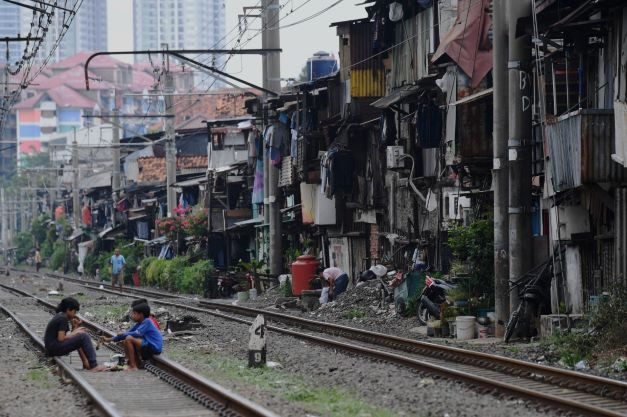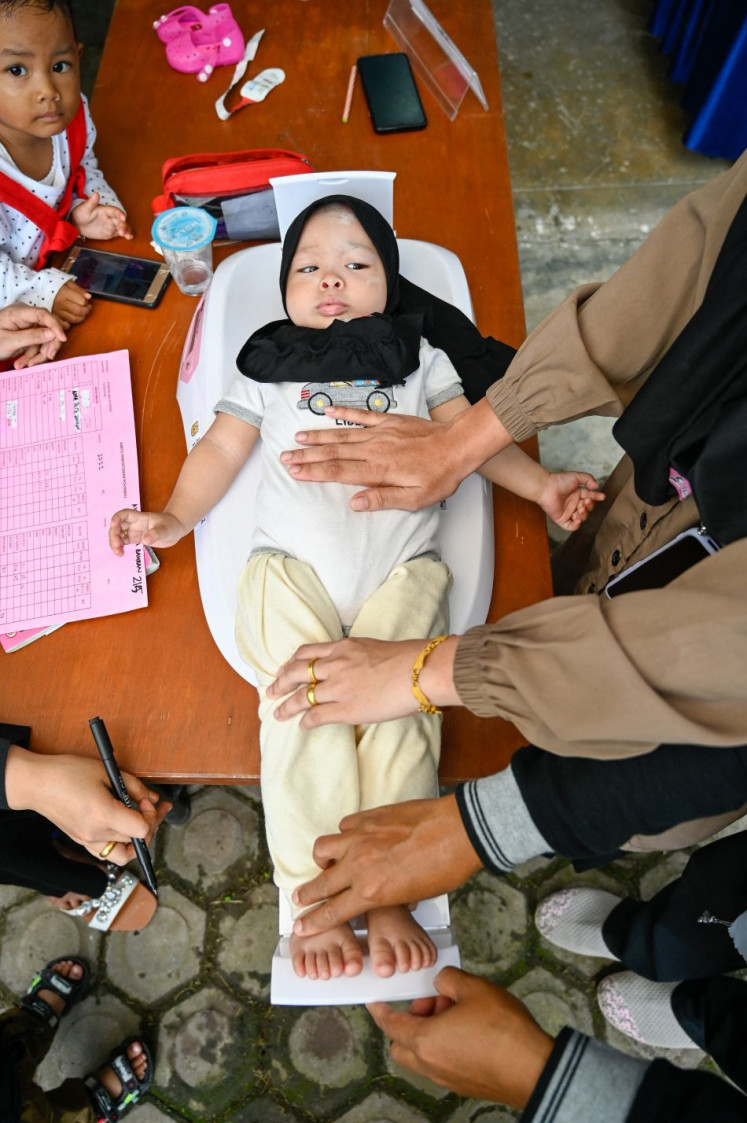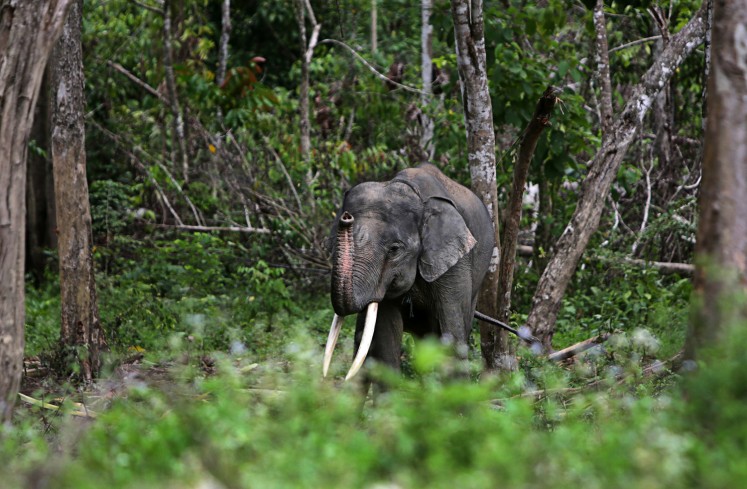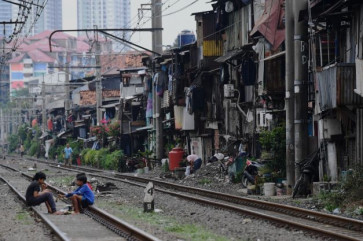Popular Reads
Top Results
Can't find what you're looking for?
View all search resultsPopular Reads
Top Results
Can't find what you're looking for?
View all search resultsCan Indonesian democracy keep up with urbanization?
It can be tempting to seek strong leaders who claim to be able to discipline the “disorderly” poor, delivering clean and modern cities.
Change text size
Gift Premium Articles
to Anyone
 On the right track: Children defy the heat as they play on the railway tracks on July 15, 2022, in a slum area in Pejompongan, Central Jakarta. Statistics Indonesia (BPS) found the country’s population living in poverty declined by 1.38 million, or 0.6 percent month-to-month, to 26.16 million in March. (Antara/Hafidz Mubarak Ahmad)
On the right track: Children defy the heat as they play on the railway tracks on July 15, 2022, in a slum area in Pejompongan, Central Jakarta. Statistics Indonesia (BPS) found the country’s population living in poverty declined by 1.38 million, or 0.6 percent month-to-month, to 26.16 million in March. (Antara/Hafidz Mubarak Ahmad)
T
he world is rapidly urbanizing. As more people move to cities and as cities grow, the proportion of people living in them grows relative to the population in rural areas. According to World Bank data, by 2050 nearly 70 percent of all people in the world will live in cities. In the Global South, it is expected that 55 percent will be living in urban areas by 2025.
Indonesia is no exception. The World Bank data predicts that by 2040, more than 60 percent of the country’s population will be living in urban areas. This demographic trend is fueled by structural changes to the economy, as the contribution of the rural-based agricultural sector continues to fall, accompanied by corresponding growth in the urban-based services sector. Recent data from Statistics Indonesia (BPS) shows that the agricultural sector contracted 0.42 percent in 2021.
The steady growth of urbanization is not just an economic process but also a physical one, as urban areas must accommodate increasing numbers of inhabitants in limited areas. As a result, issues arise with water supply, air pollution, housing, transportation, waste management and crime. The recent air pollution crisis in Jakarta is a poignant example, with President Joko “Jokowi” Widodo suffering the effects.
Furthermore, a land subsidence issue that has been plaguing Indonesian cities and towns. Jakarta is famously sinking, but this issue also affects cities along the north coast of Java, including Semarang and Pekalongan. As urban growth, and the accompanying economic growth, push the boundaries of towns ever further, more and more land is claimed for urban projects. This includes the building of hotels, resorts, roads and other projects. Economic outcomes are often prioritized over ecological concerns, which burdens the land, causes subsidence and leads to chronic flooding.
These physical and environmental challenges reveal the political conundrum at the heart of governing urban Indonesia. These challenges of urbanization became entwined with Indonesia’s history as it emerged from the 20th century having recently shaken off president Soeharto’s authoritarian New Order to begin the process of democratization known as the reform movement. There is no consensus on the best way to govern urban areas, with some recommending the more assertive, authoritarian and top-down approach, while others suggest a more consultative and bottom-up approach.
Do Indonesian cities need a strong hand or a light touch?
A man named Ali Sadikin led Jakarta from 1966 to 1977 at the zenith of the New Order. Tasked by Soeharto to clean up the sprawling Jakartan metropolis, Ali was the pioneer of a new, modernized Jakarta, and he contributed deeply to the city that many recognize today. On a mission to create an orderly, clean and modern city, he built roads, cleaned the waterways and even attempted to ban migrants from the countryside from entering the city.


















